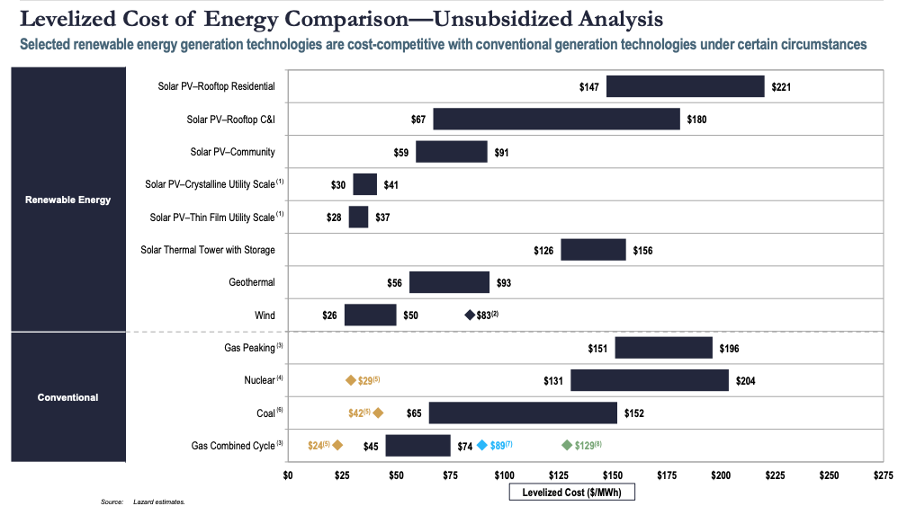To nuclear or not to nuclear?


· 4 min read
The German government has finally made good on its promise to complete the so-called ‘atomausstieg’ or decommissioning of the last remaining nuclear power plants in Germany. Europe’s biggest economy is therefore no longer running on any nuclear power and will fully commit to renewable and other low-carbon technologies to power the country. Interestingly, at almost the same time the newest nuclear reactor in Europe, the Olkiluoto 3 in Finland, has come online for commercial production. This seems quite contradictory l and I felt the need to share my thoughts on the place of nuclear power in the energy transition.
Nuclear power has been around for some time. The clear benefit of being able to produce large amounts of heat (and thus power) with small amounts of fuel and low waste was quickly realized and harnessed. Currently, a very large fleet of nuclear power stations exists around the world. By itself, this power generation is almost carbon-free. However, disasters like Tsjernobyl and Fukushima exposed the risks of nuclear power generation, which can be categorized as having a small chance of occurring (only 2 major incidents in over 80 years) but a very large long-term impact on the environment and society. Therefore, the trend was to wind down nuclear power generation in most regions, with some notable exceptions in particular emerging economies like China, Russia, India and Bangladesh.
The steady emergency of the energy transition, and thus the addition of intermittent energy sources like solar and wind to a statically designed grid, has reversed this discussion somewhat. You could argue that anchoring the energy system with a base of steady low-carbon nuclear power is a good thing and actually helps to overcome some of the intermittent and storage challenges we are facing now. On top of that, the energy crisis caused by the Ukraine war also exposed the weakness of over-reliance on energy sources controlled by other states (natural gas imports from Russia) and refocused the discussion on domestic nuclear power. Currently, there is a clear trend of plans to add nuclear generation, particularly in Asia.
Having said all that, I still think that the German government is mostly right. Despite all these notable advantages and the current upward trend, I would still argue that nuclear will not have a major advantage and place in the energy transition. There are a few simple reasons for that:
Although Nuclear power is steady in costs, it is still significantly higher than renewables like solar and wind. The latest levelized costs reported by Lazard states that nuclear power generation costs are between 4 and 6 times higher than solar and wind. This includes costs for the storage of energy for solar and wind.

Source: Lazard
Building and operating a nuclear power plant is very complex. Even the most recent addition to the European fleet in Finland was delayed by 18 years before coming online. It also reported a significant budget overrun and was plagued with all kinds of technical issues.
Another system in the UK has similar problems and the completion date is constantly being pushed ahead. Simply put, it is very hard and costly to build a safe nuclear power plant. Compare this with setting up solar, wind and biogas systems and those are a breeze to build.
Proponents of nuclear often point to the energy security angle. However, this is slightly flawed as, at least in Europe, most nuclear fuel comes from abroad as well. Countries like Kazakhstan are major suppliers but also Canada and the US. That is not in itself a problem but the characterization that nuclear is immune to geopolitical instability is simply not true.
Nuclear power is safe but if something happens, it causes significant damage over a very long period. In addition, there is still no satisfactory long-term solution for storing nuclear waste. A significant amount is being processed and made safe but there is still a portion that needs to be stored for thousands of years. Again, compare this with other renewables that do not have this risk profile at all and are relatively easy to install and operate.
Simply put, nuclear power has some major drawbacks in terms of price, complexity and safety that will not change soon. Compared to other readily available renewables it simply makes no sense to add new generation capacity. Also, unless you compromise on the safety aspects, it will take decades to build a single reactor. The world will have moved on significantly by then and have even more cheap renewables in place. So the perceived benefit is gone by then. And yes, the spent fuel could be used for nuclear fusion but that is also at least 30 years away.
My advice would be to keep what you have, but not to invest any further in nuclear power but instead focus on actual renewables, storage and grid flexibility. That is cheaper, less complex and gives us low-carbon energy much quicker!
illuminem Voices is a democratic space presenting the thoughts and opinions of leading Sustainability & Energy writers, their opinions do not necessarily represent those of illuminem.
Nargiz Shantayeva

Nuclear · Renewables Tech
illuminem briefings

Nuclear · Power & Utilities
illuminem briefings

Public Governance · Nuclear
The Wall Street Journal

Power & Utilities · Nuclear
TechCrunch

Nuclear · Power & Utilities
ESG News

Sustainable Finance · Nuclear